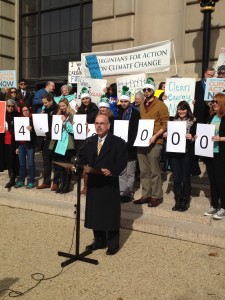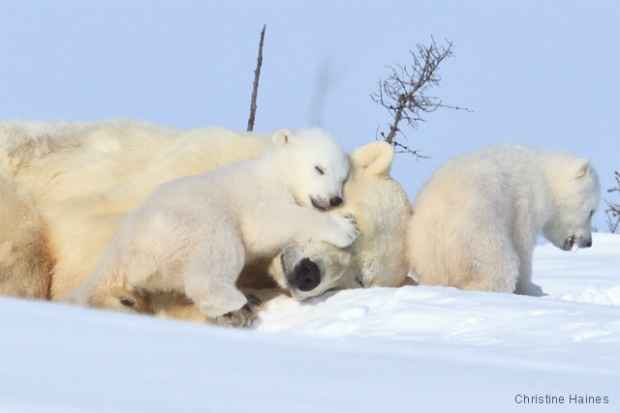We have much more to do and your continued support is needed now more than ever.
EPA Holds Hearing on New Carbon Pollution Standard

It was an incredibly inspiring day, as I watched students, teachers, moms, health professionals, and many more praise the EPA’s taking a major step into a cleaner and more sustainable future for people and wildlife. Congressman Henry Waxman spoke at a press conference during the hearing in praise of the EPA’s actions along with a fourth generation coal miner from Kentucky and a representative from the National Hispanic Environmental Council. Senator Sheldon Whitehouse also testified yesterday at the hearing, sharing his strong support for the EPA’s rule-making and reinforcing the importance of the EPA’s actions in our fight against climate change. The agency’s carbon rule, as many noted, is a first step toward curbing global warming and the most significant action ever taken by the US government to address this problem.
Tell EPA you support wildlife and a strong carbon pollution rule. Take Action Here
Global warming is the greatest threat to wildlife in modern history. If nations do not curb climate change, we could see the loss of one-quarter to one-third of all species on earth over time.
The Carbon Rule
EPA has proposed the first Clean Air Act standard for industrial carbon pollution from new power plants. Though the proposed rule applies to new, not existing, generating units, this rule is can pave the way for regulations that would limit carbon pollution from existing power plants as well.
While the EPA currently regulates other pollutants such as mercury and smog, carbon pollution remains completely unregulated in the U.S. This rule would fix this glaring loophole and set in place long overdue protection for our planet.
Wildlife, Habitat at Risk

![]() Speak up for polar bears by showing the Environmental Protection Agency your support for strong limits on pollution from coal-fired power plants.
Speak up for polar bears by showing the Environmental Protection Agency your support for strong limits on pollution from coal-fired power plants.





















